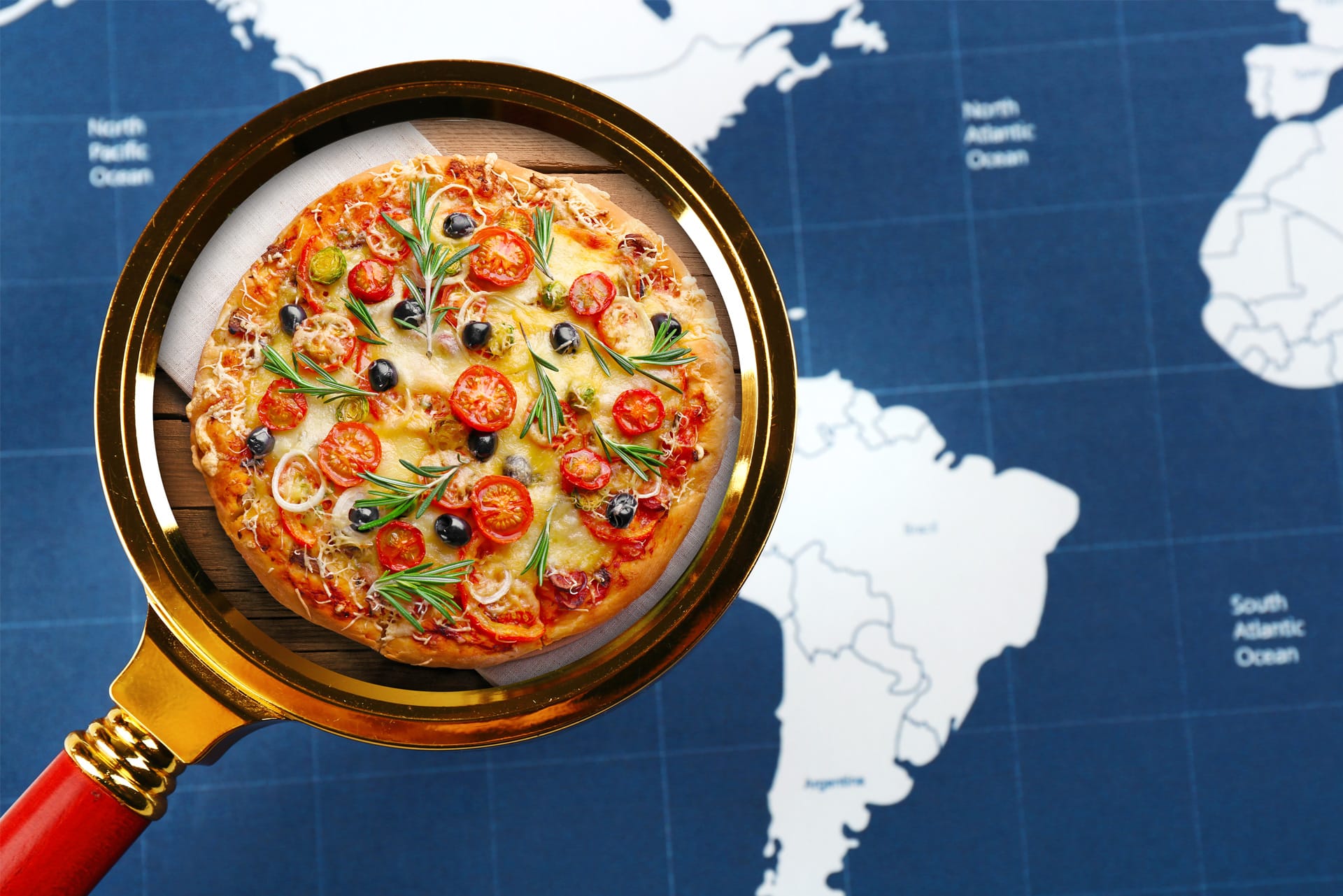Pizza, a universally adored culinary delight, has managed to transcend not only geographical borders but also linguistic ones. As it journeys through cultures and languages, it acquires a whole host of nicknames that often add a touch of local flavour and a sense of belonging to its already practically irresistible allure. From the bustling streets of New York to the charming piazzas of Naples, and even to the cosy corners of the UK, let’s take a delectable tour of the diverse nicknames for pizza all around the world.
Italy: La Regina Margherita and Beyond
In its homeland of Italy, pizza is revered as a symbol of long-lasting tradition and craftsmanship. Yet, even in the place of its origin, there exist playful monikers that reflect the Italian love for a well-prepared pizza. In Naples, where pizza first gained its modern form, it’s affectionately called, “la regina margherita”, paying homage to the Margherita pizza that’s graced with tomatoes, mozzarella and basil – artfully representing the colours of the Italian flag. Informally, it’s known as “a’ pizz” in the Neapolitan dialect, highlighting the ease with which locals have embraced the dish.
United States: The Slice and The Za
A little trip across the Atlantic, in the US, pizza has taken on nicknames as diverse as the country itself. “The Slice” is a casual and straightforward term used in places like New York, where grabbing a quick slice on the go is practically an art form. In colloquial terms, it’s often referred to simply as “pie”, drawing a connection to its circular shape. And then there’s the infamous “Za” – a playful abbreviation that has gained popularity, especially amongst younger generations, who are always looking for creative ways to express their love for this cheesy masterpiece.
Australia: A Little Aussie Twist
The pizza has taken on a distinctly Aussie spin in the land down under, where the culture is known for its laid-back charm. Nicknamed “parma” or “parmi”, short for chicken parmigiana, it refers to a specific type of pizza which is topped with chicken, tomato sauce, cheese, and sometimes ham. This local twist showcases the Australian penchant for creating unique variations catering to their tastes.
France: A Gastronomic Delight
In the refined culinary world of France, pizza has earned the nickname “la flammekueche” or simply “flammekueche” – which translates to pie baked in the flames. Originating from the Alsace region, this variation of pizza features a thin crust topped with fromage blanc, onions and lardons, reminiscent of the country’s rich gastronomic history. While it might not have the same tomato and cheese-heavy profile as a traditional pizza, it remains an utterly delectable example of how cultures reimagine familiar dishes to suit their specific tastes.
Japan: Okonomiyaki’s Cousin
In Japan, a country known for its thriving innovative culinary scene, pizza finds itself under the spotlight with a nickname that reflects its East-meets-West fusion – dubbed “okonomiyaki pizza” – which literally translates to grilled as you like it. It draws inspiration from the Japanese savoury pancake, okonomiyaki. This pizza features a variety of toppings such as cabbage, pork, seafood and a drizzle of okonomiyaki sauce, offering a tantalising blend of flavours from both cultures.
United Kingdom: A British Take
In the UK, pizza has carved out its own niche within the culinary landscape. While the term “pizza” is commonly used, there’s a particular fondness for “pizzalike”, a rather whimsical way to describe a pizza’s appearance of resemblance.
A Multilingual Delight
From Naples’ ancient streets to Tokyo’s modern metropolises, pizza has woven itself into the very fabric of global cuisine. Its nicknames, each a reflection of the culture that embraces it, add a charming layer to the world’s adoration for this cheesy, saucy creation. As we savour every slice of pizza, remember that although names and flavours may vary, the universal shared joy that pizza brings knows no bounds. It is a delicious reminder of our shared love for good food and camaraderie, regardless of the language we speak.

